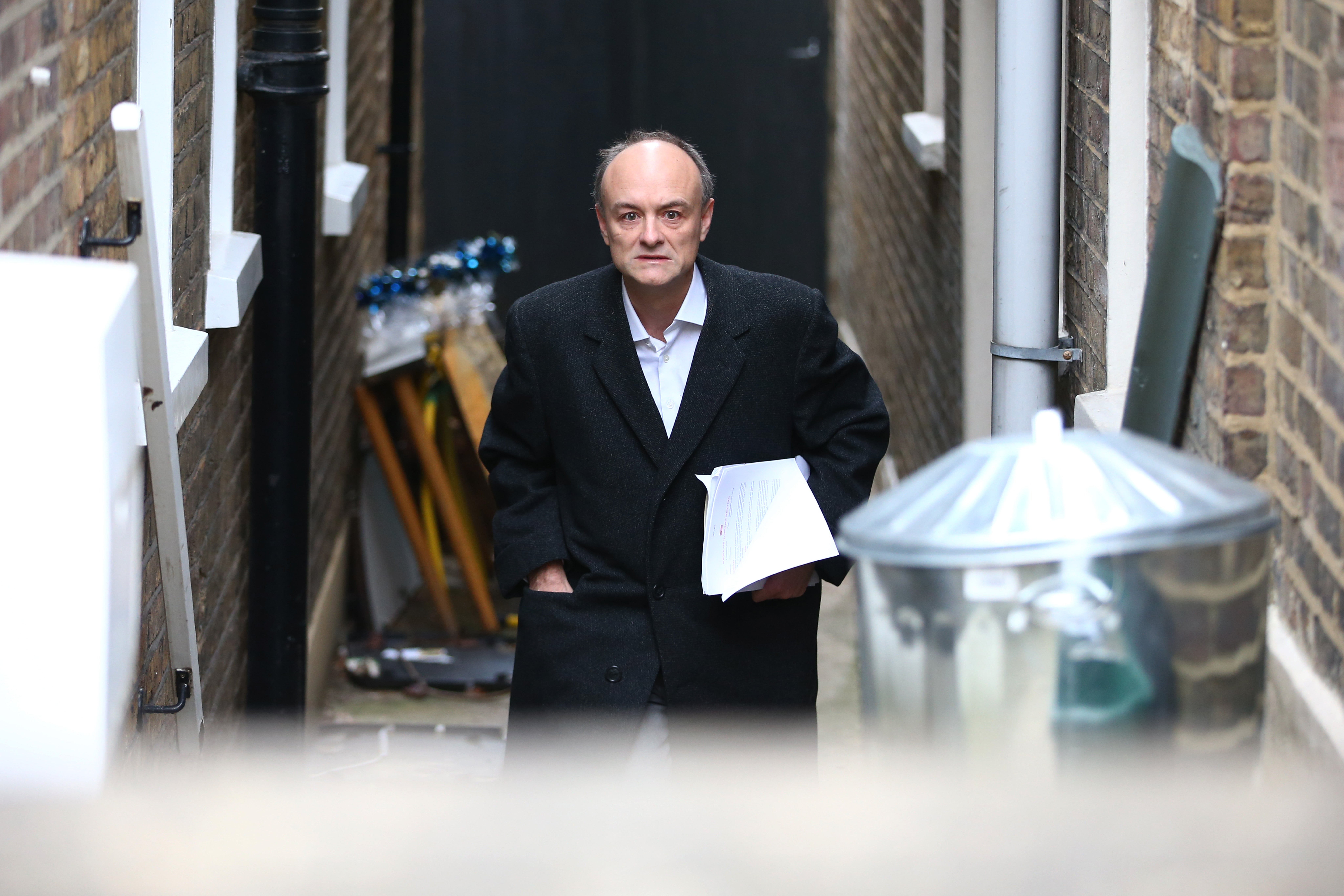If Dominic Cummings had leaked, he should have been praised for promoting open government
The prime minister’s adviser has hit back at claims that he is responsible for recent leaks. John Rentoul says that whoever it was performed a public service


Boris Johnson was unwise to speculate – if that is what he did – that Dominic Cummings might be behind the recent leaks from the heart of his government, including his own text exchanges with Sir James Dyson. The prime minister was right to fear that his former chief adviser was disaffected and might seek to damage him. But the recent leaks are not really Cummings’s style. His style, as we have now discovered, is a blistering full-frontal assault on his blog.
The leaks – about Sir James, David Cameron’s lobbying on behalf of Greensill Capital, and even about the refurbishment of the No 11 flat – are nothing like as serious as the revelations contained in Cummings’s damning inside account – particularly where he describes telling Johnson that “his plans to have donors secretly pay for the renovation were unethical, foolish, possibly illegal and almost certainly broke the rules on proper disclosure of political donations if conducted in the way he intended”.
If it is true that Johnson authorised his staff to accuse Cummings of being responsible for the previous, covert leaks, he clearly misjudged his former adviser. Not only did it seem unlikely that Cummings had been responsible, but the wrongful accusation was guaranteed to provoke much more damaging retribution. On the external evidence, the leaks appear to have been motivated by a concern for transparent and honest government – the kind of thing that might bother a propriety-minded civil servant more than a swashbuckling political adviser.
The revelation that David Cameron had lobbied Rishi Sunak by way of text messages to his personal phone could well have come from a civil servant who thought there was something not quite right about a former prime minister lobbying in secret for personal gain. The chancellor shared the contents of the texts with senior officials, and asked them if what Cameron was asking on behalf of Greensill Capital was reasonable. They said no, which meant that Cameron’s lobbying was unsuccessful; but you can see how a civil servant might think it in the public interest that such lobbying should be disclosed.
The conscience of public servants is one of the unwritten parts of the British constitution that helps to keep public life honest. Sometimes civil service whistleblowers get it wrong, as when Clive Ponting, an official in the Ministry of Defence, leaked information about the sinking of the General Belgrano during the Falklands war. He thought Margaret Thatcher had given misleading information, saying the Belgrano had been sailing towards the Falklands when it was sunk by a British submarine, when in fact it had been sailing away. It later emerged that the ship had been zigzagging, under orders to attack British ships, so Thatcher had been right to say it was a threat.
But it is important that public servants make things known if they think that ministers are up to no good. Indeed, if it had turned out to be Cummings who had revealed the lobbying Cameron undertook on behalf of Lex Greensill, he should have been praised for his public service, because it must be right that we know about it, whether or not the lobbying was successful.
Some of the other leaks are less obviously in the public interest, but the important thing is that you can see how, as in Ponting’s case, a civil servant might think they were.
The recent spate of leaks started with stories in the Daily Mail about the refurbishment of the Downing Street flat. Given that Carrie Symonds, the prime minister’s fiancee, was responsible for the works, and that she fell out with Cummings and his Vote Leave allies, the “revenge of Dom” headlines were understandable. But it was just as likely that civil servants might have thought it wrong to allow Conservative Party donors to pay for a vanity upgrade of public property.
The leak of Johnson’s text exchanges with Sir James Dyson was less damaging to the prime minister than Keir Starmer hoped it would be. Most people would have expected Johnson to have “shifted heaven and earth” to get as many ventilators built as possible, and would have thought it reasonable for Sir James to want to clarify the tax position of any of his staff sent to Britain to help out.
But it does raise the issue of the principle of a prime minister being lobbied in private on his personal mobile phone. An issue that, incidentally, puts allegations of Tony Blair having operated an informal “sofa government” into perspective. As Blair told the Strand Group yesterday, he didn’t have his own mobile while he was prime minister – and when he did use mobiles it was never to send text messages. Hence the story of his learning to text when he left office: he sent a text to Alastair Campbell, who replied, “Who’s this?” Blair sent another, commenting on how quickly Campbell had forgotten him.
Whoever did leak these exchanges performed a valuable public service in exposing the problem of open government and accountable procedures in the use of mobile phones. But it should have been obvious that if Cummings wanted revenge, he would find more dramatic ways of exacting it than leaking information about processology within government – and now he has.
Suddenly, the story has moved on from the need to tighten up the rules on ministerial lobbying and the use of mobile phones in government to a full-blown political crisis, as the prime minister is accused by someone who was there of falling “below the standards of competence and integrity the country deserves”.



Join our commenting forum
Join thought-provoking conversations, follow other Independent readers and see their replies
Comments